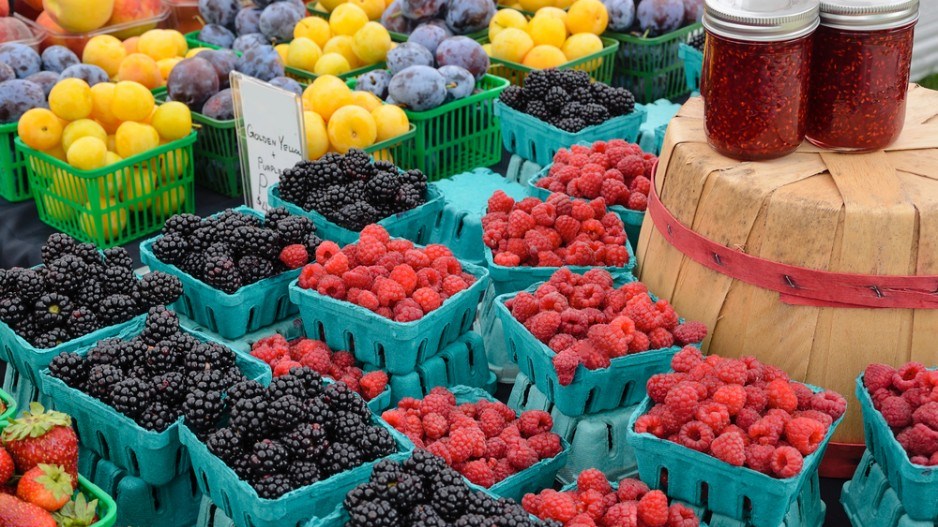Dozens of communities throughout the province have seized upon loosened liquor laws since Victoria began allowing the sales and sampling of liquor at farmers’ markets this summer, the government reports.
Figures released by the province August 21 show more than 100 B.C. liquor makers are selling their adult beverages throughout 40 communities across the province.
The new provincial regulations went into effect June 21, while the City of Vancouver rolled out a pilot program the following week that permitted farmers’ markets to sell craft liquor.
Tara McDonald, executive director of Vancouver Farmers Markets, said having liquor experts on site to recommend pairings for locally grown food has been mutually beneficial relationship for everyone.
“Nothing is imported and that’s the same for our vendors of alcohol. These are all local breweries, local vineyards and distilleries that are making these products, and they know exactly what’s in season on the food side of things,” she said.
Vancouver’s pilot program ends in the fall but McDonald said she’s hopeful the arrangement could be expanded and made permanent.
For the pilot, just three farmers markets — Mount Pleasant, Kerrisdale and Yaletown — are permitted to have three vendors on their premises selling alcohol.
BC Wine Studio, Bomber Brewing, Longtable Distillery and R&B Brewing are among the 10 authorized to sell liquor at Vancouver farmers’ markets.
McDonald said manufacturers have told her the increased exposure from the markets has boosted drop-in visits at their respective wineries, distilleries and breweries.
B.C. has 403 liquor manufacturers, including 275 wineries, 89 breweries and 37 distilleries. Approximately 25% of these manufacturers are selling their products at B.C. farmers markets.
Alcohol manufacturers must apply directly to markets if they wish to sell their products.
From there, the market associations decide whether to accept the application. But farmers’ markets are still subject to municipal bylaws that may restrict the sales of alcohol.
The B.C. government has been gradually relaxing liquor regulations for the past few months, however, there have been criticisms of the new reforms.
On the same day B.C. announced farmers’ markets had been given permission to sell alcohol, the province also introduced a minimum pricing policy for pubs and restaurants.
For instance, beer and cider was to be sold at $0.25 an ounce. This meant the lowest price a drinking establishment could charge for a full pint of beer during the newly introduced happy hour was $5. Meanwhile, 60-ounce pitchers would cost a minimum of $15.
The government modified the rules a month later following backlash, and a 60-ounce pitcher of beer or cider was reduced to $12 — or $0.20 an ounce.
But Adam Chatburn of the Vancouver chapter of Campaign for Real Ale (CAMRA) told Business in Vancouver in July it seemed as if the government was encouraging British Columbians to purchase alcohol in larger quantities.




